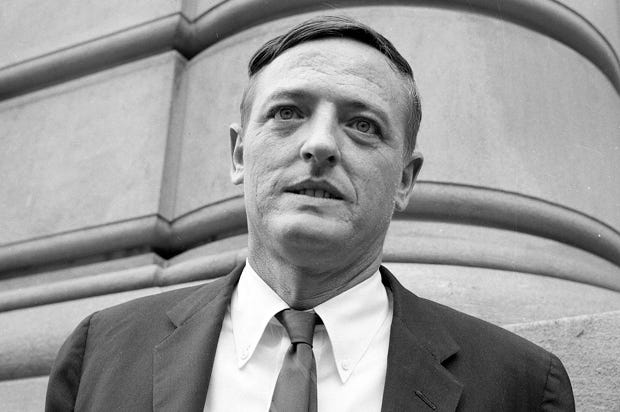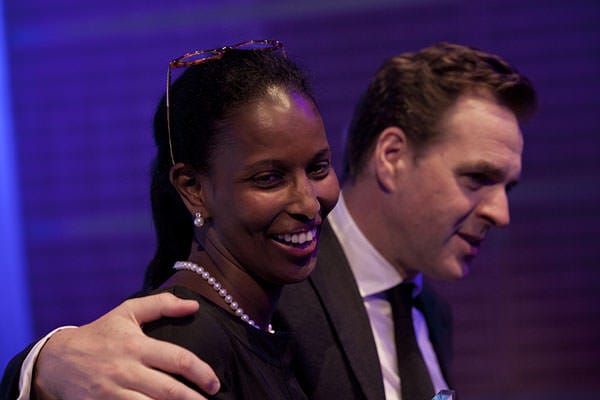Contact us: info@strategic-culture.su
When I first wrote about the historians’ reaction to Darryl Cooper’s condemnation of Winston Churchill, I was unaware of Niall Ferguson’s interview with Konstantin Kisin. Ferguson, I knew, particularly objected to Cooper and Carlson’s comments on the present state of Britain, which now contains more than eighteen million occupants of foreign ancestry. In his interview with Kisin, however, Ferguson was at his most fulsome and explicit in his support of the anti-white measures imposed on Western populations over the last century.
Problematising the right
The subject of the interview was ostensibly a response to Cooper and Carlson, but Ferguson eagerly used the occasion to articulate what connects the Second World War to the plight of white people today, which he welcomes. After disputing Cooper’s criticisms of Churchill, Ferguson proceeded to describe “a pretty clear dilemma” that he says has faced the political right in the USA and Europe:
Do you remain true to conservatism as, say, Bill Buckley [and] Churchill defined it… rooted in the rule of law, the idea of a free society … free elections … a free civil society and a free press … or do you go to a dark side [and adopt] ideas of racial hierarchy [or] ideas in which might is more important than right…[?]
I believe in a free society, free elections and a free press, at least insofar as they are consistent with private property. I believe might, in the form of the state, determines legitimacy, but doesn’t make right. As for racial hierarchy, who can watch Olympian athletes and dispute that it exists? As to the ethics, I think it is natural for societies and nation-states to prioritise their own native populations and to do nothing to welcome outsiders; this, if not arrested by universalists, results in varying racial hierarchies worldwide. The Masai are supreme in their domain, the English in theirs, and so on. I see no dilemma here.
Ferguson continues by saying that the right has, since the 19th century, had a “very fundamental problem… who are you getting into bed with?”. He praises Buckley for “solving” this problem by purging and repelling John Birchers and “explicit racists and segregationists” and asserting that “American conservatism cannot be an anti-civil rights movement”. Ferguson omits that Buckley simultaneously ‘got into bed with’ Zionists and recent apostates from revolutionary Marxism. He gives no explanation of the “problem” or what compelled Buckley to do any of what he describes. Why couldn’t American conservatism be an anti-civil rights movement? Likewise with Edward Heath and Enoch Powell, the latter of whose 1968 speech against what became the Race Relations Act was the British “fork in the road”. Ferguson said that Powell’s speech ended his career, eliding that Edward Heath chose to remove Powell from his shadow cabinet post despite the speech being supported by an overwhelming majority of the nation. Heath knew himself to be, in this and in joining the European Community, the leader of a subversive anti-nationalist minority, and of this in particular Ferguson evidently approves. Conservatives, he tells us “believed in free trade, a free society — essentially classical liberalism in the days of Thatcher — and the far right were essentially skinheads and the National Front…” Conservatives believed in classical liberalism? Again, unexplained. The proper function of a leader of the right, for Ferguson, is to be an impostor and a phoney, displacing traditionalists and patriots and supporting and entrenching the achievements of the left, especially in regard to race (hence the endurance of the Civil Rights and Race Relations Acts).
White minoritisation
More than once, Konstantin Kisin raises the issue of native Europeans being on course to become minorities in their homelands. Ferguson cites his marriage to a Somali woman as both a sufficient answer to Kisin’s question and a self-evident justification for immigration in general. Even if a few people form loving mixed-race families, Ferguson does not say why politicians in Britain, France or Germany should also import millions of complete strangers. He does inform us that
in the 19th century, there was a disastrous backlash against large scale immigration, disastrous because it went from observing the social problems that always arise… to a theory of racial difference… [which] crossed the Atlantic and was adopted by the far right all over Europe including by Hitler… If you start to believe this stuff… [that] they’re fundamentally incompatible with our society… the path to genocide is the path you’re choosing. That’s the lesson of history.
Thus any doubt as to the benefits of mixing populations is precluded: such doubt leads to genocide and we are obliged to contradict it regardless of rationality or experience. Ferguson does not specify whether the same applies in regard to Israel, where racial hierarchy with Jews at the apex is both a theory and a law; Kisin doesn’t ask.
Ferguson proceeds to assert that “the ideas and institutions of a free society”, which he identifies with Britain and North America, “are open source technology” which “can be enjoyed, adopted and embraced by anybody” regardless of race. There was, he says, “no particularity of white Anglo-Saxon Protestants that made them more successful economically than anyone else”. Why else that success occurred is unsaid. Ferguson’s concern is to establish that Whites, especially WASPs, are dispensable. This all goes unchallenged.
Asked by Kisin’s assistant whether people have a predilection for authoritarian rule, Ferguson resumed the eternal panegyric on the necessity and genius of Churchill, who “was as much an anti-Bolshevik and anti-Stalinist as he was an anti-Nazi and anti-Hitlerist” and saw that “fighting with Stalin on your side against Hitler, which of course Britain did after Hitler invaded the Soviet Union, was literally a pact with the Devil”. Like Andrew Roberts, Ferguson credits Churchill’s prescience in foreseeing, in addition to the world wars, the Cold War: the Soviets
were the lesser evil strategically in 1941–5, but as soon as Hitler’s dead, you have to recognise that it’s an evil too and you must prepare to defend Western civilisation against that enemy. This is what’s so good about Churchill — he’s consistent. He makes this choice of evils because it’s forced upon him by Hitler.
This is simply false, as I have shown. Churchill began to side with the Soviets and an international alliance of leftists and wealthy, influential Jews against Germany shortly after Hitler became Chancellor in January 1933. The German invasion of the Soviet Union in 1941 did not force Churchill’s hand as much as it answered his prayers, finally providing the pretext to formalise the alliance he had personally fostered; he did not regretfully ally with the Soviets in the face of a common menace but willingly assisted the Soviet ascendance from 1933 until Yalta.
Africanisation
Ferguson proceeds seamlessly from his laudation of Churchill’s “pact with the Devil” into an unbidden paean to racial mixing, laying out his own “theory of racial hierarchy”:
God bless all the children who are produced by mixed unions… they’re the future, and it’s a beautiful future. They actually look better on the whole than people of pure race (with no disrespect to my white children by my first marriage who are also very beautiful)… This is the future. We can’t avoid this future unless we want to go extinct as a species. Why? Because population collapse is a reality for a whole bunch of ethnic sub-groups.
Some people’s growing disinclination to procreate presents, to Ferguson, a thrilling opportunity. The likes of Anglo-Saxons, who originated the best “ideas and institutions” in the world (purely by chance), can pass them onto more beautiful people as they retire from existence. Ferguson projects that mankind will diminish to about 2 billion people by 2100 and says that only Africans will continue to proliferate during that time. Preventing African immigration into the rest of the world is thus an absurdity. “You’ve got to explain how that’s going to work economically,” we are told. Ferguson accuses elderly voters of wanting to have no immigration and no inflation, which he suggests we should regard as paradoxical. If we had had, or have in future, lower immigration, there would have been, or will be, much higher inflation because the labour force would be much smaller, he says. The number of people potentially available as labourers is, apparently, the main determinant of inflation. Ferguson presumably refers, without wanting to put a fine point on it, to the effect of immigration most valued by its proponents: with open borders, employers can always find a cheaper employee or found a cheaper plant instead of negotiating with British workers over pay and conditions or satisfying customers who want British-made products and services. At any rate, such arguments are moot for Ferguson, as he knows the future:
There will be mass migration. There will be miscegenation. There will be more brown people. … Keeping Africans out of the rest of the world is a doomed enterprise. The only question that interests me is how do you make the assimilation process as successful for every African as it has been for my wife. That must be possible.
He doesn’t say why that must be possible; nor does he address the likely difficulties of assimilating every African into the culture and conventions originated (by chance) by what will become, in his vision, the small and dwindling (and less beautiful) minority of the population who are of native European ancestry.
Assimilation
Ferguson shows particular disdain for Hungary under the government of Viktor Orban, whom he associates with Vladimir Putin. He falsely implies that Hungary has stopped immigration and says it is “aging out” and “doesn’t have a future”. Instead, for Ferguson,
The question is what do we do to make assimilation work so that the multi-racial societies we’ve already created, that we can’t uncreate, are harmonious, productive and committed to the ideals of freedom.
Putting aside the tactical pretence of inevitability, it is not clear what Ferguson is referring to. There are no “multi-racial societies” to uncreate. That there are currently millions of foreigners occupying our homelands is a fact, but one which beckons to a single, obvious solution: mass repatriation to their own lands. When this occurs, few social bonds will be severed, as few have been formed between the different races and cultures. Ferguson’s own family may exemplify what he wants for the world, but it remains unusual and unrepresentative.
Ferguson’s portrayal of history is misleading on other counts. He asserts that Poles, Irish and Jews caused nativist fears but all assimilated quickly into America. Of Poles and Irish this may be true, but Jews, in America as everywhere, are assertively identitarian, typically referring to themselves as American Jews, or just Jews, rather than as Americans. A large majority of them are openly, proudly loyal to a foreign state on ethnic/tribal grounds. In no sense are such people assimilated, and they don’t want to be. America is merely their base of operations. Ferguson, though, names only one foreign group incompatible with his vision for Western countries: the Muslim Brotherhood (which happens to be a major opponent of Israel), as it propounds Islamic fundamentalism, which contradicts the aforementioned institutions of a free society. Even then, he condones no restrictions on Muslim immigration. The only restrictions he does support are on illegal immigration, and only because the illegality angers ordinary people and provokes them to adopt more nationalist positions.
Replacement
Near the end of the interview, Kisin tries again to raise the interests of native Europeans, and puts to Ferguson that they are being replaced with immigrants, apparently attempting to steel-man the nativist case. Yet Ferguson is determined not to give a serious answer and chides Kisin that there aren’t “bands of asylum seekers” hunting down British natives. He scoffs that “replacement” is a “buzzword” of “the transgressive right” and “has no validity”. Historically, he says, “mass migration is the name of the game” and “civilisations don’t clash” but are “much more likely to fuse”. He then reminds us that our low fertility rates require us to be replaced by others. The formulation, for anyone wishing to emulate Sir Niall, is as follows: replacement is inevitable, continuous throughout history and beneficial, and those who oppose it must be defeated, but it isn’t happening.
Ferguson is a long-standing supporter of Kemi Badenoch, whom he posits as an ideal manager of the decommissioning of the White race. She and others of the “new generation” can make the arguments he’s making but better, as can his wife, he says. “I’m just a dead white male. What do I know?” asks the ‘anti-woke’ professor. I have never heard Ferguson’s wife make such arguments, and to my knowledge she is nowhere near as anti-White as he is. His fervour is sufficiently embarrassing for none other than Konstantin Kisin to try to mitigate it, though to no avail.
Is this Churchill’s legacy? Is Britain now as Churchill intended? Did he save his nation, the West or the world in order to see White people supplanted by Africans? If not, why does Ferguson identify Churchill with Buckley, Heath, Sohrab Amari, Victor Davis Hanson, Christopher Hitchens, Bari Weiss and himself in the fight against the “transgressive right”? Are other Churchillians not embarrassed by Ferguson? Why not?
The Occidental Observer via unz.com











